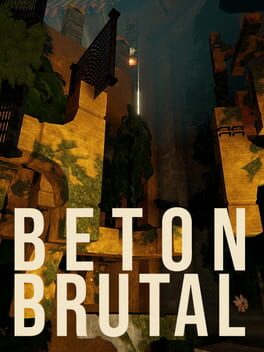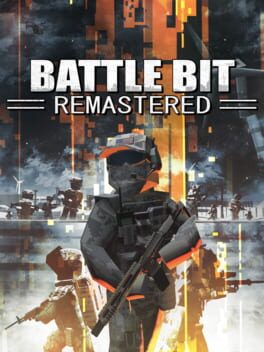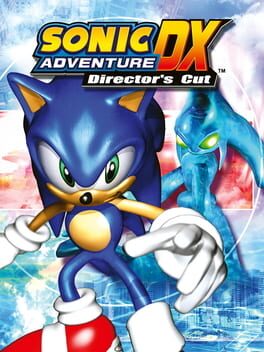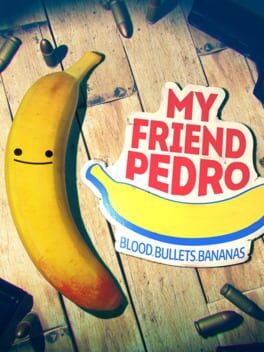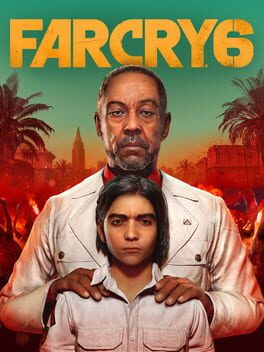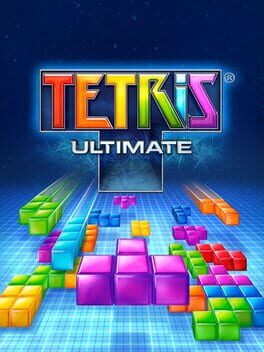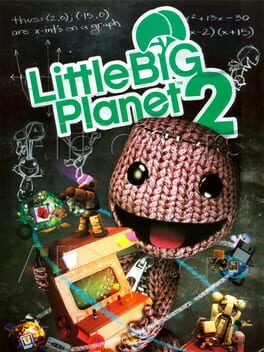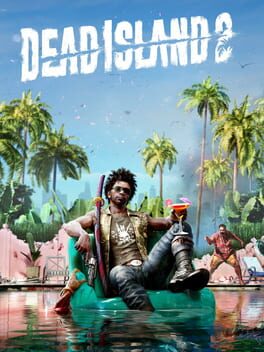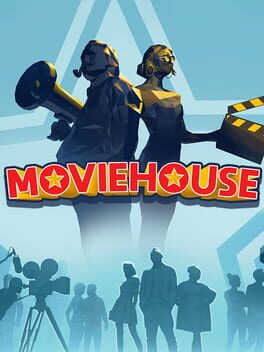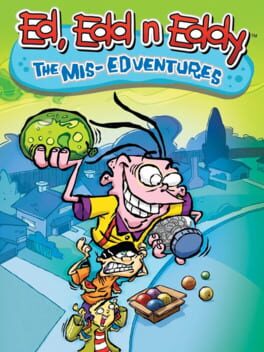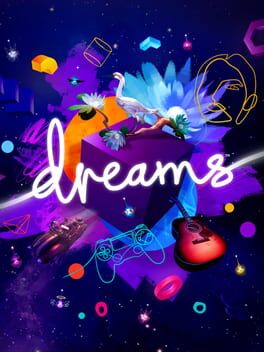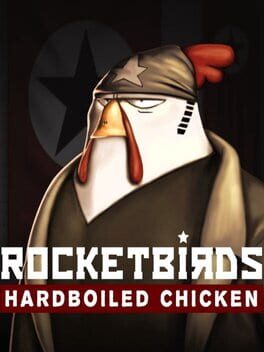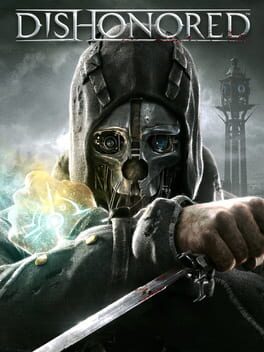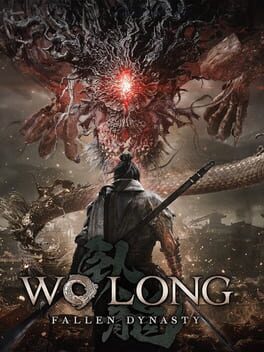Yultimona
2023
Beton Brutal's focus on precision platforming results in a tough, tense experience that should very well resemble drinking Dayquil for the flavor to anyone not looking to speedrun it. I disagree with that notion. If you have the patience for it, Beton will reward your curiosity. The timer in the corner and set-dressing of all attempts as runs are both illusions. You can take as long as you want to complete this, and there's no shame in that. There's an enthrallingly visceral joy in finally understanding how the game wants to proceed. Sometimes, it comes to you naturally, and sometimes, the game can work like a bit of a puzzle box focused on climbing. I still haven't reached the top of the tower yet, I keep falling. But I feel content with that because it's been a lot of fun so far.
I totally understand that this won't be to everyone's taste. But I've been having a blast with it.
I totally understand that this won't be to everyone's taste. But I've been having a blast with it.
2023
What I love about BattleBit isn't that it's fun. It's not that it's tactical, either, and I don't find it particularly compelling as a platform for teamwork. As much as I like sticking it to the man, my admiration also doesn't stem from it being a cheaper, more approachable version of Battlefield.
BattleBit makes dying a therapeutic form of art.
All too often, I find death in these games frustrating. You're pulled in by the punchiness of the guns, the gorgeous vistas, and the hard-hitting combat. But all too often, that realism compounds frustration. I want to be immersed in the world in front of me, but I can't because I'm stupid, part of my disability is a reduction in motor capability, and I have this constant, nagging feeling that I'm worse off than the others around me.
What BattleBit does to address this is three-fold: its dedication to a simplistic art style means you take it less seriously, everyone is as vulnerable as you are, and toxicity is actually dealt with. I wrote in my review for Unturned over a year ago that one of the key features of a blocky art style is that it's inherently goofy. It's a flavor of minimalism that favors a more tongue-in-cheek approach, whether or not that was the intent. And it works a lot here! Roblox comparisons are inevitable, and as long as they're welcome, I'll say that this reminds me of the string of really fun First Person Shooters on the platform before it became a shamelessly commercial enterprise. BattleBit might not have the originality of Framed! or Very Important Person, but it's far more polished than either of those ever were and doesn't need to rely on any Freemium trappings to get the job done. If I were to make a serious comparison to any of the games on Roblox now, the obvious candidate is Phantom Forces. I don't find the movement to be as smooth here, but what BattleBit manages to smooth over is a lot of the frustrating aspects of Phantom Forces. Phantom Forces is a game where, roughly eight times out of ten, the optimal strategy I find myself using is to pull an automatic shotgun with a twenty-round drum and unload. It doesn't work to the degree that a sniper would, but still manages to be lots of fun to use. While that's entertaining to a degree, it doesn't fix the fact that Phantom isn't the most balanced of games. You'll have rounds where that strategy can do wonders for you, but you'll also have games where you're always just absolutely being stomped on by players who have had hundreds of hours more experience than you have. It's to BattleBit's benefit that the first time I decided to snipe, somebody from halfway across the map got me. If anyone wanted to do the same to them, they could without hesitation. While, in theory, this sounds ridiculously frustrating, I find that the larger servers create an entirely different beast. Death is not an exception that good soldiers dodge, it's the expectation. You're not playing to win or to even see if you can, but to see how far you can push yourself before something gets you. In that sense, the rules of the game fade into the background. Winning or losing just kind of happens; everything else around them may fade into a blur at some point, but generally speaking, it's kind of a relaxing experience overall. It's super strange to say that about a game whose overwhelmingly chaotic nature will turn anyone expecting a fast-paced, Call of Duty-like arcade experience at the gate. But genuinely, I find losing to be fun here. And I think what reinforces that is that, at least at a cursory glance, the developers seem to be aware of what these kinds of games devolve into. Before entering any of the official servers, you pretty much have to click on an agreement where you promise to be a civilized little gamer and comfortably enjoy your time playing without needing to take casually trash-talk too far. The Steam forums are, predictably, not happy about this. But the people who frequent those have an unhealthy relationship with the word Woke that borders on limerent, so I don't care.
If you really don't care for multiplayer shooters, this isn't going to do much to change your mind. But otherwise, I highly recommend this.
BattleBit makes dying a therapeutic form of art.
All too often, I find death in these games frustrating. You're pulled in by the punchiness of the guns, the gorgeous vistas, and the hard-hitting combat. But all too often, that realism compounds frustration. I want to be immersed in the world in front of me, but I can't because I'm stupid, part of my disability is a reduction in motor capability, and I have this constant, nagging feeling that I'm worse off than the others around me.
What BattleBit does to address this is three-fold: its dedication to a simplistic art style means you take it less seriously, everyone is as vulnerable as you are, and toxicity is actually dealt with. I wrote in my review for Unturned over a year ago that one of the key features of a blocky art style is that it's inherently goofy. It's a flavor of minimalism that favors a more tongue-in-cheek approach, whether or not that was the intent. And it works a lot here! Roblox comparisons are inevitable, and as long as they're welcome, I'll say that this reminds me of the string of really fun First Person Shooters on the platform before it became a shamelessly commercial enterprise. BattleBit might not have the originality of Framed! or Very Important Person, but it's far more polished than either of those ever were and doesn't need to rely on any Freemium trappings to get the job done. If I were to make a serious comparison to any of the games on Roblox now, the obvious candidate is Phantom Forces. I don't find the movement to be as smooth here, but what BattleBit manages to smooth over is a lot of the frustrating aspects of Phantom Forces. Phantom Forces is a game where, roughly eight times out of ten, the optimal strategy I find myself using is to pull an automatic shotgun with a twenty-round drum and unload. It doesn't work to the degree that a sniper would, but still manages to be lots of fun to use. While that's entertaining to a degree, it doesn't fix the fact that Phantom isn't the most balanced of games. You'll have rounds where that strategy can do wonders for you, but you'll also have games where you're always just absolutely being stomped on by players who have had hundreds of hours more experience than you have. It's to BattleBit's benefit that the first time I decided to snipe, somebody from halfway across the map got me. If anyone wanted to do the same to them, they could without hesitation. While, in theory, this sounds ridiculously frustrating, I find that the larger servers create an entirely different beast. Death is not an exception that good soldiers dodge, it's the expectation. You're not playing to win or to even see if you can, but to see how far you can push yourself before something gets you. In that sense, the rules of the game fade into the background. Winning or losing just kind of happens; everything else around them may fade into a blur at some point, but generally speaking, it's kind of a relaxing experience overall. It's super strange to say that about a game whose overwhelmingly chaotic nature will turn anyone expecting a fast-paced, Call of Duty-like arcade experience at the gate. But genuinely, I find losing to be fun here. And I think what reinforces that is that, at least at a cursory glance, the developers seem to be aware of what these kinds of games devolve into. Before entering any of the official servers, you pretty much have to click on an agreement where you promise to be a civilized little gamer and comfortably enjoy your time playing without needing to take casually trash-talk too far. The Steam forums are, predictably, not happy about this. But the people who frequent those have an unhealthy relationship with the word Woke that borders on limerent, so I don't care.
If you really don't care for multiplayer shooters, this isn't going to do much to change your mind. But otherwise, I highly recommend this.
This game is really charming, but revisiting this after years, I can totally see why I always played this for the Chao Garden as a kid and never actually got that far. Put it this way: I don't recommend this unless you have built up a tolerance for early-3D platformer controls. Trying to beat the first stage again was genuinely headache-inducing. I'd want to go back to an area to collect rings I'd left behind, and the camera would be facing my back. Nooks and crannies were all but noticeable because I literally couldn't see them, and this problem only exacerbated itself when enemies and traps were nearby. Running on walls to collect rings also felt incredibly janky, to the point where both the controls for it and the bad camera controls combined in such a way that the game started spazzing out through the wall I was trying to climb at one point.
I don't want to be too negative on this. I genuinely want to know why this is heralded as a classic for so many and relive some of my fondest childhood memories. I'll probably get around to playing more of it soon, but right now, my head hurts.
I don't want to be too negative on this. I genuinely want to know why this is heralded as a classic for so many and relive some of my fondest childhood memories. I'll probably get around to playing more of it soon, but right now, my head hurts.
2019
An enjoyably straightforward game-ass game. That blunt simplicity does mean that this does better in small doses, though—I frequently find myself taking breaks between levels. But if you're looking for an enjoyable over-the-top shooter with some fun movement mechanics, I wholeheartedly recommend this.
The one real gripe I have with My Friend Pedro is that I don't get how its scoring system works or why it's even in the game. A big part of the reason I still haven't beaten this despite putting well over ten hours into it is that I'm a little perfectionist sometimes; it took me hours to beat Ultrakill's first stage, and that's only because I kept trying to get an S on it with the starting weapons. In Ultrakill, you're rewarded for speed, combos, and absurd kills. In My Friend Pedro, I've beaten stages where I have a firm grasp on all three, but I finish with a C because? Because I don't know. I know there's a bonus for playing on harder difficulties and another bonus for not dying. But other than that, how well you're actually doing on a level is poorly telegraphed. To bring up Ultrakill again, another thing that I like about that game's scoring system is that it takes into account kills that aren't just shooting guys very fast. There's a bonus for shooting at a coin and getting a ricochet shot to land, one for blowing up groups of enemies, one for jumping on the heads of your enemies, and so on. Although it's fun to jump off of an enemy while dual wielding pistols, split my aim mid-air, and kill two guys at once in slow-motion... I don't feel like the game ever adequately rewards me for doing it. I know exactly how this is going to be misconstrued; "skill issue!" Counterpoint: Hotline Miami 2. I suck ass at that game, but I feel content about it. Something about My Friend Pedro's mix of score-centric systems and movement-based shooting mechanics just don't click in the way they should for me, and while I'm usually okay with a B or a C, I find that to be disappointing.
Edit: beat the game. The scoring system never makes more sense, and I actually think it's a creative decision that sets this back in the long haul. Otherwise, this is a solid three stars!
The one real gripe I have with My Friend Pedro is that I don't get how its scoring system works or why it's even in the game. A big part of the reason I still haven't beaten this despite putting well over ten hours into it is that I'm a little perfectionist sometimes; it took me hours to beat Ultrakill's first stage, and that's only because I kept trying to get an S on it with the starting weapons. In Ultrakill, you're rewarded for speed, combos, and absurd kills. In My Friend Pedro, I've beaten stages where I have a firm grasp on all three, but I finish with a C because? Because I don't know. I know there's a bonus for playing on harder difficulties and another bonus for not dying. But other than that, how well you're actually doing on a level is poorly telegraphed. To bring up Ultrakill again, another thing that I like about that game's scoring system is that it takes into account kills that aren't just shooting guys very fast. There's a bonus for shooting at a coin and getting a ricochet shot to land, one for blowing up groups of enemies, one for jumping on the heads of your enemies, and so on. Although it's fun to jump off of an enemy while dual wielding pistols, split my aim mid-air, and kill two guys at once in slow-motion... I don't feel like the game ever adequately rewards me for doing it. I know exactly how this is going to be misconstrued; "skill issue!" Counterpoint: Hotline Miami 2. I suck ass at that game, but I feel content about it. Something about My Friend Pedro's mix of score-centric systems and movement-based shooting mechanics just don't click in the way they should for me, and while I'm usually okay with a B or a C, I find that to be disappointing.
Edit: beat the game. The scoring system never makes more sense, and I actually think it's a creative decision that sets this back in the long haul. Otherwise, this is a solid three stars!
It starts with a janitor.
You're tasked with trailing him to his house in your car for a uniform. All you have to do is wait and, when the time is right, have a polite conversation with him.
So, anyway, I put a bomb on his door and blew him up the second he walked over to it. I punched him, tased him, shot him, poured gasoline on his brand-new car, and rammed his brand-new car with my stolen one. When I was supposed to park my car around the corner, I made the side of his car my parking lot. All of this "spooked" him, but never once did he die.
Like Classic Rock, Open World is an umbrella term. You have your Checklist Open Worlds, Zelda Open Worlds, Open Worlds that play like STALKER, Open Worlds by Bethesda, and so on. And then you have Rockstar games. The selling point is detail: in Fallout 3, technical limitations mean that every time you see a train running, what you're experiencing is an unnamed citizen with a train hat on, literally running. With Rockstar, the nails in the train tracks around the world are dynamically hammered in by unnamed NPCs that you can talk to. Cars turn realistically in Grand Theft Auto IV, and your average fast-travel system is replaced with a network of trains that you can interact with unscripted. Viewed separately from the content in them, they're masters in their field.
Ultimately, it all comes back to that janitor in the end. I've ruminated on it before, but a lot of what I find to be funny about that scene, in particular, is an imbalance between content and context. It's funny to keep failing specifically because the game asks you not to but puts in no safeguards to keep you from using its more emergent systems against itself. The issue Grand Theft Auto V has is that its caricatures only accelerate this imbalance. If the entire experience is supposed to be stupid, head empty, dumb fun, why play the rules at all?
In Red Dead Redemption II, I occasionally did the same thing. The game was linear, and I was bored, so I gave myself something to laugh at. But more of my time was spent in a modded version of the photo mode, where landmarks as simple and small as hills became vital storytelling tools for my version of Arthur Morgan. Abandoned wagons spoke to a quiet feeling of loss as fog enveloped the greenery. As nature took its course, I felt my figure shrink until it folded into the shadowy figure of the mountains behind me. It could only last for so long—but at least I was there for the trip. Farewell.
There's an inherent sense of melancholy in Red Dead Redemption II's world that I've seldom felt in the games I've played—much less from the Houser brothers and their culture of debauchery. To their credit, much of that comes from the narrative and characters. But beyond anything they had more than a minor role in, it's due to sunsets, fog, red dirt, and dry sand more than anything else. Red Dead Redemption II made me understand the cliche of riding into the sunset beyond a bus I took in high school one time, and it made me want to keep riding through the dark.
Another returning issue from other Rockstar games is as follows: movement still feels janky. I don't find it surprising at all that legendary filmmaker John Carpenter, fan of Sonic Unleashed and Halo Infinite, couldn't bring himself to finish this game. First-person mode here is a continent and two miles above what they half-assed into Grand Theft Auto V for the PlayStation 4 and Xbox One ports, and thus it's the way I recommend playing this. But eventually, you have to get on a horse, and there's no perspective you can control that in where it always feels as intuitive as you want it to be. Crucially, while running around, it was very easy to me to tackle someone accidentally in a public space. I am grateful that the police system in this is more lenient than what's currently in Cyberpunk 2077, because I would have quit otherwise. But it's not perfect, either. You can always pay off your bounties, meaning that while the ride to a nearby post office can be tense, it occasionally feels like there are no meaningful repercussions for aberrant behavior. Combat in Red Dead Redemption II feels better than anything else Rockstar has ever done; using the revolver actually gives you a reason to hip-fire instead of aiming at everything, and it feels glorious. But it's impossible to ignore that a lot of betrays the narrative cohesion found in the cinematics. Given how much of a vibe this game can be, it's a total shame that it falls victim to the Rockstar trope of every mission being either a Shootout Mission, Chase Mission, or Inconvenient Mission that Secretly Becomes a Shootout at the Last Second. As much fun as I had using the shotguns in this game, at some point, I was just kind of over it, and while that's not a feeling that stuck for very long, it never truly went away.
I loved Arthur Morgan, and I loved having him wear a brown coat and have long hair because those are the things that make me feel effeminate and manly at the same time. I loved naming my horse after a television reference because I had one of the final knife twists spoiled for me in advance, and also because it was a cute name for my horse. I liked both Epilogue parts, and I can understand the excuses someone might make for Guarma.
Easily Rockstar's best, I can't wait to see how they fuck up their next game.
You're tasked with trailing him to his house in your car for a uniform. All you have to do is wait and, when the time is right, have a polite conversation with him.
So, anyway, I put a bomb on his door and blew him up the second he walked over to it. I punched him, tased him, shot him, poured gasoline on his brand-new car, and rammed his brand-new car with my stolen one. When I was supposed to park my car around the corner, I made the side of his car my parking lot. All of this "spooked" him, but never once did he die.
Like Classic Rock, Open World is an umbrella term. You have your Checklist Open Worlds, Zelda Open Worlds, Open Worlds that play like STALKER, Open Worlds by Bethesda, and so on. And then you have Rockstar games. The selling point is detail: in Fallout 3, technical limitations mean that every time you see a train running, what you're experiencing is an unnamed citizen with a train hat on, literally running. With Rockstar, the nails in the train tracks around the world are dynamically hammered in by unnamed NPCs that you can talk to. Cars turn realistically in Grand Theft Auto IV, and your average fast-travel system is replaced with a network of trains that you can interact with unscripted. Viewed separately from the content in them, they're masters in their field.
Ultimately, it all comes back to that janitor in the end. I've ruminated on it before, but a lot of what I find to be funny about that scene, in particular, is an imbalance between content and context. It's funny to keep failing specifically because the game asks you not to but puts in no safeguards to keep you from using its more emergent systems against itself. The issue Grand Theft Auto V has is that its caricatures only accelerate this imbalance. If the entire experience is supposed to be stupid, head empty, dumb fun, why play the rules at all?
In Red Dead Redemption II, I occasionally did the same thing. The game was linear, and I was bored, so I gave myself something to laugh at. But more of my time was spent in a modded version of the photo mode, where landmarks as simple and small as hills became vital storytelling tools for my version of Arthur Morgan. Abandoned wagons spoke to a quiet feeling of loss as fog enveloped the greenery. As nature took its course, I felt my figure shrink until it folded into the shadowy figure of the mountains behind me. It could only last for so long—but at least I was there for the trip. Farewell.
There's an inherent sense of melancholy in Red Dead Redemption II's world that I've seldom felt in the games I've played—much less from the Houser brothers and their culture of debauchery. To their credit, much of that comes from the narrative and characters. But beyond anything they had more than a minor role in, it's due to sunsets, fog, red dirt, and dry sand more than anything else. Red Dead Redemption II made me understand the cliche of riding into the sunset beyond a bus I took in high school one time, and it made me want to keep riding through the dark.
Another returning issue from other Rockstar games is as follows: movement still feels janky. I don't find it surprising at all that legendary filmmaker John Carpenter, fan of Sonic Unleashed and Halo Infinite, couldn't bring himself to finish this game. First-person mode here is a continent and two miles above what they half-assed into Grand Theft Auto V for the PlayStation 4 and Xbox One ports, and thus it's the way I recommend playing this. But eventually, you have to get on a horse, and there's no perspective you can control that in where it always feels as intuitive as you want it to be. Crucially, while running around, it was very easy to me to tackle someone accidentally in a public space. I am grateful that the police system in this is more lenient than what's currently in Cyberpunk 2077, because I would have quit otherwise. But it's not perfect, either. You can always pay off your bounties, meaning that while the ride to a nearby post office can be tense, it occasionally feels like there are no meaningful repercussions for aberrant behavior. Combat in Red Dead Redemption II feels better than anything else Rockstar has ever done; using the revolver actually gives you a reason to hip-fire instead of aiming at everything, and it feels glorious. But it's impossible to ignore that a lot of betrays the narrative cohesion found in the cinematics. Given how much of a vibe this game can be, it's a total shame that it falls victim to the Rockstar trope of every mission being either a Shootout Mission, Chase Mission, or Inconvenient Mission that Secretly Becomes a Shootout at the Last Second. As much fun as I had using the shotguns in this game, at some point, I was just kind of over it, and while that's not a feeling that stuck for very long, it never truly went away.
I loved Arthur Morgan, and I loved having him wear a brown coat and have long hair because those are the things that make me feel effeminate and manly at the same time. I loved naming my horse after a television reference because I had one of the final knife twists spoiled for me in advance, and also because it was a cute name for my horse. I liked both Epilogue parts, and I can understand the excuses someone might make for Guarma.
Easily Rockstar's best, I can't wait to see how they fuck up their next game.
2021
The easiest way I can describe this type of open world design is this:
I like instant ramen a lot. Is it as good as actual ramen? Hell no. But it's easy, reliable, and makes for a good breakfast in the morning.
Just because I like instant ramen does not mean I love two packages of instant ramen cooked in the same bowl. I mean, I don't hate it. It's more of what I like, up to a certain point. Past that point, it's chewing, chewing, chewing, and then there's the broth. Fuuuuck, the broth. By the time I'm done with the noodles, I feel like I've committed a cardinal sin of some type and my stomach ain't having it. It wants to go on strike, but I can't resist the alluring temptation of the broth. By the time I'm done with a bowl, I never want to touch the shit again. I'm getting too fat, Jesus Christ, I should eat, like, broccoli or something next time.
I know how arbitrary and stupid that metaphor is, but really, that's what these massive open worlds feel like. I'd love to say that it's a Ubisoft problem, but Just Cause 2 did the same thing in 2010. These clutter-boxes just aren't to my appetite, and that's a shame.
I like instant ramen a lot. Is it as good as actual ramen? Hell no. But it's easy, reliable, and makes for a good breakfast in the morning.
Just because I like instant ramen does not mean I love two packages of instant ramen cooked in the same bowl. I mean, I don't hate it. It's more of what I like, up to a certain point. Past that point, it's chewing, chewing, chewing, and then there's the broth. Fuuuuck, the broth. By the time I'm done with the noodles, I feel like I've committed a cardinal sin of some type and my stomach ain't having it. It wants to go on strike, but I can't resist the alluring temptation of the broth. By the time I'm done with a bowl, I never want to touch the shit again. I'm getting too fat, Jesus Christ, I should eat, like, broccoli or something next time.
I know how arbitrary and stupid that metaphor is, but really, that's what these massive open worlds feel like. I'd love to say that it's a Ubisoft problem, but Just Cause 2 did the same thing in 2010. These clutter-boxes just aren't to my appetite, and that's a shame.
2014
The version of Tetris that had technical issues is fine on the Vita. It is, in fact, Tetris. There's an almost dreamlike, ephemeral soundtrack that fills me with more silent dread than anything else, an online component that's pretty much dead but can at least be played with bots, and a control scheme that uses both of the analog sticks.
...the control scheme isn't very good! Multiple times while using the D-Pad, my finger's slipped to the left analog stick, which is right below it, and accidentally caused a block to hard-drop, or to move in funny ways. But even engaging with the control scheme as intended is all sorts of awkward. It honestly feels like you're playing one of those old-school FPS games on the PS2 or something where you end up changing your controls immediately because the default control scheme uses the right stick to strafe and not the left. I'm assuming this has something to do with the Vita's tiny thumbsticks, but they could have at least taken that into consideration???
Either way, it's just more Tetris. I don't know where they went "wrong" with this one; you'd have to ask my sister about that. All I know is, it's given me a lot more reason to use my Vita than I already have.
...the control scheme isn't very good! Multiple times while using the D-Pad, my finger's slipped to the left analog stick, which is right below it, and accidentally caused a block to hard-drop, or to move in funny ways. But even engaging with the control scheme as intended is all sorts of awkward. It honestly feels like you're playing one of those old-school FPS games on the PS2 or something where you end up changing your controls immediately because the default control scheme uses the right stick to strafe and not the left. I'm assuming this has something to do with the Vita's tiny thumbsticks, but they could have at least taken that into consideration???
Either way, it's just more Tetris. I don't know where they went "wrong" with this one; you'd have to ask my sister about that. All I know is, it's given me a lot more reason to use my Vita than I already have.
2011
Sometime following the release of LittleBigPlanet 2 in 2011, it was announced that Media Molecule was teaming up with Toyota, of all companies, to do a promotion for the Prius. Assets made to look like a Prius were given away, and a contest was held. If there's any indication of how that probably went, the entry my older brother submitted is as far away from palatable marketing as one can get. The description of LittleBigPrius Goes On a Killing Spree simply reads, "Go green with your road rage". You are trapped in a small cardboard box with an infinite number of rodents that never stop spawning, and your only goal is to kill as many of them as possible. There is no win state, and you cannot lose; it goes on like this until you get bored and decide to quit. In hindsight, the reading on what LBPrius Goes On a Killing Spree is is something you can spot from outer space: a counter-cultural shitpost used to disengage from a deplorable marketing scheme and throw discussion elsewhere. I was probably around nine or ten years old at the time, and he was eleven.
Almost by design, LittleBigPlanet 2 was a game that not only encouraged all shades of creativity but was particularly interested in seeing things through a more punk-oriented lens; we just didn't realize it at the time. You see that old man? He looks at the things you want to see and scoffs at them every time. And sure, he might be right, but fuck him! If you want to make a game where you have to survive in a Taco Bell as burrito-shaped bombs fall from the sky, you go, girl! If you want to have a game where the shark from Jaws is replaced with several miniature buttocks that shit an unrelenting stream of plasma at you until you die, he can't tell you no. If you want to create what you think a baller-ass house would look like, that can be considered a game now, as are all of the wildly inventive ideas you can think of. There is a reason why the emo community thrived on this game for as long as it did. I wasn't personally a part of it, and as a child, I found it to be quite off-putting. But on a platform where the limits of your creativity are stretched to "don't cuss and don't draw dicks," it only makes sense that the emotional at heart would have found a home, and I find that sentiment to be indicative of this package as a whole.
It's a shame that all of this is a footnote now. In a figurative and literal sense, the creations of old don't really exist anymore. Although everything is backed up in LittleBigPlanet 3, there are enough glitches in that game to shave a creator's vision off a mile from where it was etched. The additional layers added to the play space are brought over to old levels almost by accident. Unless the level you're playing on is Wiggler World 2, it's super easy to bypass levels entirely. The best example of this is raced-oriented levels. With this newfound ability, you don't even have to start races to jump to the exit of a level immediately. But I suppose that's all a byproduct of it being the only archive nowadays. I guess it was always an inevitability that the servers wouldn't stay online for long, but never in a million years did I think they would be used to spread hate before vanishing. As the eulogy this is, I'm almost bound by a clandestine oath to say that this is one of the greatest games of all-time, and it kind of is? But it's not. I don't know how we ever let it slide as children, but LittleBigPlanet 2 has to be one of the most egregiously over-monetized games I owned back then. The download code we received with the Special Edition when we got our copy was chock full of DLC to be sold at later dates—and we never even redeemed the thing. It expired before we even knew we had it in our house. Some of the DLC was great; the PlayStation Move pack that wound up being bundled with the Special Edition, for example, was an endless source of joy for us. But most of it was costumes, and they were just... whatever. The creativity of dressing up and finding new ways to look fancy was almost stripped by the corporate need to boost sales, and in retrospect, that's a damn shame. It's easy to remember the good times, but in doing so, I believe it's also necessary to be entirely honest.
With the online component stripped and left with only its campaign, LittleBigPlanet 2 is hardly worth visiting nowadays outside of a cursory glance done out of curiosity. But for the memories it's given me, I will always respect it.
Almost by design, LittleBigPlanet 2 was a game that not only encouraged all shades of creativity but was particularly interested in seeing things through a more punk-oriented lens; we just didn't realize it at the time. You see that old man? He looks at the things you want to see and scoffs at them every time. And sure, he might be right, but fuck him! If you want to make a game where you have to survive in a Taco Bell as burrito-shaped bombs fall from the sky, you go, girl! If you want to have a game where the shark from Jaws is replaced with several miniature buttocks that shit an unrelenting stream of plasma at you until you die, he can't tell you no. If you want to create what you think a baller-ass house would look like, that can be considered a game now, as are all of the wildly inventive ideas you can think of. There is a reason why the emo community thrived on this game for as long as it did. I wasn't personally a part of it, and as a child, I found it to be quite off-putting. But on a platform where the limits of your creativity are stretched to "don't cuss and don't draw dicks," it only makes sense that the emotional at heart would have found a home, and I find that sentiment to be indicative of this package as a whole.
It's a shame that all of this is a footnote now. In a figurative and literal sense, the creations of old don't really exist anymore. Although everything is backed up in LittleBigPlanet 3, there are enough glitches in that game to shave a creator's vision off a mile from where it was etched. The additional layers added to the play space are brought over to old levels almost by accident. Unless the level you're playing on is Wiggler World 2, it's super easy to bypass levels entirely. The best example of this is raced-oriented levels. With this newfound ability, you don't even have to start races to jump to the exit of a level immediately. But I suppose that's all a byproduct of it being the only archive nowadays. I guess it was always an inevitability that the servers wouldn't stay online for long, but never in a million years did I think they would be used to spread hate before vanishing. As the eulogy this is, I'm almost bound by a clandestine oath to say that this is one of the greatest games of all-time, and it kind of is? But it's not. I don't know how we ever let it slide as children, but LittleBigPlanet 2 has to be one of the most egregiously over-monetized games I owned back then. The download code we received with the Special Edition when we got our copy was chock full of DLC to be sold at later dates—and we never even redeemed the thing. It expired before we even knew we had it in our house. Some of the DLC was great; the PlayStation Move pack that wound up being bundled with the Special Edition, for example, was an endless source of joy for us. But most of it was costumes, and they were just... whatever. The creativity of dressing up and finding new ways to look fancy was almost stripped by the corporate need to boost sales, and in retrospect, that's a damn shame. It's easy to remember the good times, but in doing so, I believe it's also necessary to be entirely honest.
With the online component stripped and left with only its campaign, LittleBigPlanet 2 is hardly worth visiting nowadays outside of a cursory glance done out of curiosity. But for the memories it's given me, I will always respect it.
2023
Dead Island 2 is fine. In our state of gaming discourse, where anything below an eight or a nine out of ten is automatically bad, it was always going to be somewhat of a pariah. The extended development cycle featuring three separate developers certainly hasn't helped its perception, either; the expectations that come from a game in the oven for that long are on either side of an extreme, and reality rarely meets it.
The funny thing about that, though, is that if Dead Island 2 was released in 2015, I don't think it would have been as fascinating. Released a year after the overly ambitious sequel to its spiritual successor, it's almost refreshing to have a game this scaled-back. There isn't an Open World here; if you thought the original game kind of played like Borderlands, the immediacy with which you're asked to leave to the second area so soon after stepping foot in the first only cements that further. Unlike Borderlands, the appeal of this is pretty straightforward. With or without friends, you kill zombies in increasingly violent and silly ways. That's it. There's character building through a Skill Card system, but everything boils down to whacking the flesh off the undead while you drop-kick them in the head. The physics can use some fine-tuning, but the gore is a work of beauty. The question of, 'When was the last time you saw an action game try to sell itself on its gore?' is answered succinctly the first time you decide to keep hitting a zombie after you've downed it. But that question also has another answer attached to it: Dead Island 2 is decidedly low-stakes entertainment. It's aware of how silly its predecessor was, and it doesn't do anything to change that. It's just a better, more consistent thrill ride with genre enthusiasts who couldn't care less about having a prestige-worthy script attached to their games in mind. The worst that the nearly decade-long wait has done for this game is that it's fooled many into thinking that this either isn't enough or that there would be more to this. But I've been having a blast with this so far, so I really don't mind it.
Where your mileage will absolutely vary is in terms of this game's writing. I've heard many comparisons to last year's Saints Row, and while I can't personally make that connection, I can see where it comes from. From the offset, the team behind this was very open about the angle they were taking with this. You don't call Los Angeles 'Hell-A' if you're trying to tell an emotional, engaging story. It's pure camp, down to dated references and goofy caricatures you'll either find bittersweetly nostalgic or downright embarrassing to listen to. I'm finding the chatter to be less annoying than your average Borderlands character and I actually like the cast of characters in this so far. But if you were unable to play Borderlands 3 without muting the dialog, I wouldn't consider this an improvement.
If you want a throwback to what games were like a decade ago and you're going into this without expecting the world of it, this is a pretty enjoyable time. This is definitely not the bargain bin game some are making it out to be; at worst, I think it's worth waiting for it go on sale if you're curious but skeptical. If Dambusters keeps it at or above this level of quality, they might be developers to keep an eye on.
The funny thing about that, though, is that if Dead Island 2 was released in 2015, I don't think it would have been as fascinating. Released a year after the overly ambitious sequel to its spiritual successor, it's almost refreshing to have a game this scaled-back. There isn't an Open World here; if you thought the original game kind of played like Borderlands, the immediacy with which you're asked to leave to the second area so soon after stepping foot in the first only cements that further. Unlike Borderlands, the appeal of this is pretty straightforward. With or without friends, you kill zombies in increasingly violent and silly ways. That's it. There's character building through a Skill Card system, but everything boils down to whacking the flesh off the undead while you drop-kick them in the head. The physics can use some fine-tuning, but the gore is a work of beauty. The question of, 'When was the last time you saw an action game try to sell itself on its gore?' is answered succinctly the first time you decide to keep hitting a zombie after you've downed it. But that question also has another answer attached to it: Dead Island 2 is decidedly low-stakes entertainment. It's aware of how silly its predecessor was, and it doesn't do anything to change that. It's just a better, more consistent thrill ride with genre enthusiasts who couldn't care less about having a prestige-worthy script attached to their games in mind. The worst that the nearly decade-long wait has done for this game is that it's fooled many into thinking that this either isn't enough or that there would be more to this. But I've been having a blast with this so far, so I really don't mind it.
Where your mileage will absolutely vary is in terms of this game's writing. I've heard many comparisons to last year's Saints Row, and while I can't personally make that connection, I can see where it comes from. From the offset, the team behind this was very open about the angle they were taking with this. You don't call Los Angeles 'Hell-A' if you're trying to tell an emotional, engaging story. It's pure camp, down to dated references and goofy caricatures you'll either find bittersweetly nostalgic or downright embarrassing to listen to. I'm finding the chatter to be less annoying than your average Borderlands character and I actually like the cast of characters in this so far. But if you were unable to play Borderlands 3 without muting the dialog, I wouldn't consider this an improvement.
If you want a throwback to what games were like a decade ago and you're going into this without expecting the world of it, this is a pretty enjoyable time. This is definitely not the bargain bin game some are making it out to be; at worst, I think it's worth waiting for it go on sale if you're curious but skeptical. If Dambusters keeps it at or above this level of quality, they might be developers to keep an eye on.
2023
Moviehouse takes The Movies' reverence for all things film and transplants it into a Game Dev Tycoon-shaped mold. If you, like me, are obsessed with these types of games and adore cinema, that might be enough to sell you on this. Unfortunately, it kinda blows.
Moviehouse takes the streamlined auteur fantasy of Game Dev Tycoon to excruciating lengths. You don't even get to see the people who are working on the projects you've assigned. Your named employees are portraits that generate points, and that's it. Oh, and there are only two types of them. If they're not named, they're part of a crew that does location scouting and creates props. How many people are in a single crew? The game never tells you. All of the work done on that side of things is just labeled under 'Crew,' and that's it. If it's not simplistic to the point of parody, it's woefully undercooked. The best example of this, outside of how threadbare the system for reviews is, is film festivals. Conceptually, I like it. All creative fantasies relating to film start at a film festival. In Moviehouse, you sign up for a festival, choose your film, wait, answer a single dialog prompt with answers that don't make much sense, wait more, do more waiting, and then you get to see which position you placed in. It manages to be less interactive than the reviews are, which is downright criminal. Progression is a bit borked, as well. Spam film festivals and accept distribution deals, and eventually, you will rake in millions. There's no variety, no sense of scale. Keep doing the same thing, and you'll be rich.
Here's a question I'd like to (rhetorically) ask these developers: what separates this from an idle game? As much as I criticized Showtime for being basic, this makes it look complex in comparison. But I suppose the writing should have been on the wall. This formula doesn't work too well with filmmaking. There's a damn good reason why The Movies still reins as the best game about creating movies. It focuses on people as individuals and not resources. Shrunk down to portraits with no personality to speak of, the excitement of the fantasy completely dissipates.
Moviehouse takes the streamlined auteur fantasy of Game Dev Tycoon to excruciating lengths. You don't even get to see the people who are working on the projects you've assigned. Your named employees are portraits that generate points, and that's it. Oh, and there are only two types of them. If they're not named, they're part of a crew that does location scouting and creates props. How many people are in a single crew? The game never tells you. All of the work done on that side of things is just labeled under 'Crew,' and that's it. If it's not simplistic to the point of parody, it's woefully undercooked. The best example of this, outside of how threadbare the system for reviews is, is film festivals. Conceptually, I like it. All creative fantasies relating to film start at a film festival. In Moviehouse, you sign up for a festival, choose your film, wait, answer a single dialog prompt with answers that don't make much sense, wait more, do more waiting, and then you get to see which position you placed in. It manages to be less interactive than the reviews are, which is downright criminal. Progression is a bit borked, as well. Spam film festivals and accept distribution deals, and eventually, you will rake in millions. There's no variety, no sense of scale. Keep doing the same thing, and you'll be rich.
Here's a question I'd like to (rhetorically) ask these developers: what separates this from an idle game? As much as I criticized Showtime for being basic, this makes it look complex in comparison. But I suppose the writing should have been on the wall. This formula doesn't work too well with filmmaking. There's a damn good reason why The Movies still reins as the best game about creating movies. It focuses on people as individuals and not resources. Shrunk down to portraits with no personality to speak of, the excitement of the fantasy completely dissipates.
Ed, Edd n Eddy: The Mis-Edventures is the reason my dad owns a PlayStation 5 and became obsessed with The Last of Us for a year. I'm not shitting you.
The year was circa 2009, or something like that, and my brother was obsessed with Ed, Edd n Eddy. Kind of. Back then, we had a small collection of licensed games. There was a copy of the Robots game that I thought the House Fairy (my mom's way of getting us to clean up after ourselves) gave us once, and a copy of a weird Animaniacs game that I don't remember at all. Those are the two that stick out to me the most. So my older brother's frothing at the mouth at the thought of playing a game based on one of his favorite cartoons, and lo and behold, one exists. So he goads my dad into going to the nearby GameStop we bought a copy of Animal Crossing: City Folk and a mic for our Wii at. No cheddar. But they have a copy of it for the PlayStation 2. At this point, we're using our Wii as a glorified Gamecube and boot up Goldeneye on our dad's old N64 to scream at each other. All hope is lost for my older brother until he remembers that, 'wait, doesn't the PlayStation 3 play PS2 games?' Neither of us Google that, and the thought of watching my older brother play it inspires me to add a PlayStation 3 to my wishlist come December out of the blue. Cue the gift card my dad gets from work that Holiday season being the perfect amount for a new console; cue our brand new PlayStation 3 getting unwrapped next to a copy of Mind Flex that will gather dust in the years to come and a copy of The Beatles Rock Band for Wii that probably went to a Goodwill somewhere. Cue the memories spawned from my neighbors: the kids who went to our house for the trampoline we had in our backyard and LittleBigPlanet; the kid who lived right next to us who was so obsessed with Call of Duty that his birthday cake was literally the cover art of World At War one time; the copy of Assassin's Creed Brotherhood sold to my older brother for five dollars and promptly ignored; and, anecdotally, the kid who had to get sent to the ER after a pop-it was thrown at his head. That last one isn't related, but it comes up every time I remember these things.
If this game didn't contribute to my childhood, I don't know what did.
Too bad it kinda blows.
The year was circa 2009, or something like that, and my brother was obsessed with Ed, Edd n Eddy. Kind of. Back then, we had a small collection of licensed games. There was a copy of the Robots game that I thought the House Fairy (my mom's way of getting us to clean up after ourselves) gave us once, and a copy of a weird Animaniacs game that I don't remember at all. Those are the two that stick out to me the most. So my older brother's frothing at the mouth at the thought of playing a game based on one of his favorite cartoons, and lo and behold, one exists. So he goads my dad into going to the nearby GameStop we bought a copy of Animal Crossing: City Folk and a mic for our Wii at. No cheddar. But they have a copy of it for the PlayStation 2. At this point, we're using our Wii as a glorified Gamecube and boot up Goldeneye on our dad's old N64 to scream at each other. All hope is lost for my older brother until he remembers that, 'wait, doesn't the PlayStation 3 play PS2 games?' Neither of us Google that, and the thought of watching my older brother play it inspires me to add a PlayStation 3 to my wishlist come December out of the blue. Cue the gift card my dad gets from work that Holiday season being the perfect amount for a new console; cue our brand new PlayStation 3 getting unwrapped next to a copy of Mind Flex that will gather dust in the years to come and a copy of The Beatles Rock Band for Wii that probably went to a Goodwill somewhere. Cue the memories spawned from my neighbors: the kids who went to our house for the trampoline we had in our backyard and LittleBigPlanet; the kid who lived right next to us who was so obsessed with Call of Duty that his birthday cake was literally the cover art of World At War one time; the copy of Assassin's Creed Brotherhood sold to my older brother for five dollars and promptly ignored; and, anecdotally, the kid who had to get sent to the ER after a pop-it was thrown at his head. That last one isn't related, but it comes up every time I remember these things.
If this game didn't contribute to my childhood, I don't know what did.
Too bad it kinda blows.
2020
Dreams is not a LittleBigPlanet sequel. On its surface, the game-engine-within-a-game-engine-running-on-proprietary-consumer-hardware is reminiscent of LittleBigPlanet and its renowned sequel. But consider for a moment that describing LittleBigPlanet purely as a tool for creativity neglects the fact that, as a tool, it was kind of janky. Even its sequels, with their expanded scope and toolsets, could not compensate for the fact that trying to create anything with more than one person usually devolved into the random bouts of deathmatch usually saved for Halo's forge mode--albeit much stupider and silly than that game ever was. Fifteen years later, LittleBigPlanet stands out because it was a fun tool to play around in and also because the atmospheric, pop-music-flavored vibes are still as immaculate as ever.
You can create experiences like that in Dreams, no doubt. But if you try to play Dreams on the basis of vibes alone, what you'll find is an exceedingly vacant and wanting experience.
Dreams understands the counter-cultural angle of LittleBigPlanet's creation tools but, in execution, is more akin to a Net Yaroze spiritual successor. Net Yaroze, for those not in the know, was a brief attempt by Sony to turn their aging PlayStation 1 hardware into a hobbyist's wet dream. It may not have had all of the bells and whistles of that professional developers were afforded at the time, but given that anyone could still make a game with it, that hardly mattered. Net Yaroze's output can charitably be described as the demo scene on a smaller, more niche scale. Those invested in putting full-3D first-person shooters on the floppy disks that Doom would have shipped on weren't concerned with pushing the limits of hardware as restrictive as the PlayStation. But those who simply wanted to know what a PlayStation could do happily sent 700 dollars to Sony in the year of our lord 1997 (I'm citing Wikipedia, and there's nothing you can do about it). In much the same way, Dreams is chock-full of demonstrations. "What if I made Fallout 4?" is a sentiment you'll find throughout its community. If Dreams were as laser-focused on its target audience as Net Yaroze was, it would likely end there. But in the vein of it being a spiritual successor, those demos exist to the extent that they do in part because Dreams is more than just an accessible variant of the past. A fine line is walked between accessibility and depth. Custom music, for example, feels less like the gimmick it was in LittleBigPlanet 2, and more like a fully-fledged feature. It may not be the copy of MTV Music Maker that Jim Guthrie composed Morning Noon Night on, but I wouldn't be surprised if someone in Guthrie's elk found Dreams to be of great use. The end result is that, alongside a multitude of tech demos, Dreams is also filled to the brim with the kinds of microgames you used to see on platforms like GameJolt whenever a developer was bored or participated in a game jam. There isn't a sense that there's a broader market that these creators need to work towards; Dreams strips the bullshit away from prestige indie games and lets indies be fucking indies again.
And it's dying. It's behind a paywall, there's a fairly steep learning curve so no one's really made the great American Dreams creation yet, it never got ported to PC, and it is no longer a priority of Media Molecule's. It wouldn't surprise me if the community on this is only slightly more active than the five remaining people who play LittleBigPlanet 3. And that's a shame! Dreams deserved waaaay better. I don't know if I can recommend it in its current state, but for what it once represented, it was great.
You can create experiences like that in Dreams, no doubt. But if you try to play Dreams on the basis of vibes alone, what you'll find is an exceedingly vacant and wanting experience.
Dreams understands the counter-cultural angle of LittleBigPlanet's creation tools but, in execution, is more akin to a Net Yaroze spiritual successor. Net Yaroze, for those not in the know, was a brief attempt by Sony to turn their aging PlayStation 1 hardware into a hobbyist's wet dream. It may not have had all of the bells and whistles of that professional developers were afforded at the time, but given that anyone could still make a game with it, that hardly mattered. Net Yaroze's output can charitably be described as the demo scene on a smaller, more niche scale. Those invested in putting full-3D first-person shooters on the floppy disks that Doom would have shipped on weren't concerned with pushing the limits of hardware as restrictive as the PlayStation. But those who simply wanted to know what a PlayStation could do happily sent 700 dollars to Sony in the year of our lord 1997 (I'm citing Wikipedia, and there's nothing you can do about it). In much the same way, Dreams is chock-full of demonstrations. "What if I made Fallout 4?" is a sentiment you'll find throughout its community. If Dreams were as laser-focused on its target audience as Net Yaroze was, it would likely end there. But in the vein of it being a spiritual successor, those demos exist to the extent that they do in part because Dreams is more than just an accessible variant of the past. A fine line is walked between accessibility and depth. Custom music, for example, feels less like the gimmick it was in LittleBigPlanet 2, and more like a fully-fledged feature. It may not be the copy of MTV Music Maker that Jim Guthrie composed Morning Noon Night on, but I wouldn't be surprised if someone in Guthrie's elk found Dreams to be of great use. The end result is that, alongside a multitude of tech demos, Dreams is also filled to the brim with the kinds of microgames you used to see on platforms like GameJolt whenever a developer was bored or participated in a game jam. There isn't a sense that there's a broader market that these creators need to work towards; Dreams strips the bullshit away from prestige indie games and lets indies be fucking indies again.
And it's dying. It's behind a paywall, there's a fairly steep learning curve so no one's really made the great American Dreams creation yet, it never got ported to PC, and it is no longer a priority of Media Molecule's. It wouldn't surprise me if the community on this is only slightly more active than the five remaining people who play LittleBigPlanet 3. And that's a shame! Dreams deserved waaaay better. I don't know if I can recommend it in its current state, but for what it once represented, it was great.
The ethos of Rocketbirds: Hardboiled Chicken can best be seen in the various flying sections found throughout its relatively short campaign. A simple, glossy overview would say that a 2D sidescroller dogfighting section has to control snappy, feel responsive, and make you feel like you're always in control. Rocketbirds completely ignores this. Your first impressions of these sections will vary depending on what platform you play this game on (more on that later). But the agreed-upon consensus will probably be frustration. Your ability to move around in the air is based on your ability to hold down the button that activates your jetpack; your ability to shoot in the air depends entirely on what direction you're moving around in. For first-time players, this can be difficult to get used to. Especially on a gamepad, it's very easy to miss your targets entirely. But if repeat visits to this game have taught me anything, it's that that's the point. There's a joy in besting this control scheme that those initial impressions leave off the table. Everything feels like a constant, cyclical struggle. You'd be on the ground if you wanted to be in control. In the air, you are the bitch of gravity. Kicking gravity in the face, the space between you and the bastards you're after shrinks to almost nothing.
Rocketbirds: Hardboiled Chicken is a game that you will either have a bizarre eminent fascination with, or it won't click with you. This is a game filled to the brim with 90s attitude and design limitations, powered by MySpace-era alternative rock, and made by someone who had been wanting to make it for a very, very long time. It's Blackthorne by way of Tony Scott, making the least subtle WWII allegory possible via Saturday mornings on Cartoon Network. Movement is very slow, the cover system can get a bit tedious, platforming isn't a smooth affair, and you can only aim in the direction your character is facing. This is all intentional. Like the air sections I mentioned above, it all serves to put you in the position of the chaser. The guy you're after is the Terminator (down to the cheesy Schwarzenegger impression) and you're John Connor, but you're chasing him. You might consider this a misunderstanding of how action games work; Leon Kennedy is fast in Resident Evil 4 because if he was as slow as Mr. X, that opening village sequence wouldn't feel as intensely satisfying. As an expression of gratitude for cinema through the lens of a game, this is a far more faithful affair than a lengthy cutscene could provide. To plagiarize one of the most mocked terms in games writing as of late, it succeeds in making you feel like the unstoppable force that so many children must have saw Arnie as when they watched The Terminator for the first time, to the chagrin of their parents when that one scene came on. It's for this reason that the decision to add a Co-Operative mode almost seems baffling to me. If both parties are fine with what I've described, great. But I've yet to meet someone like that. Regardless of how you perceive this game to play, though, it's total eye candy to look at twelve years later. There is a good reason this thing shipped with the option to play it not only with a 3D TV but also with those cheap red-and-blue glasses you used to get in those old DVDs and movie theaters. My bet is that it has very little to do with Sony's attempt to push 3D technology into gaming at the time, not only because many of these options are still present in the PC version but also because I don't think Sony ever considered those flimsy glasses a suitable alternative. The main reason it's there is that the art style blends 2.5D backgrounds with stunning hand-drawn animation to great effect. It might not be on the same level as something like Cuphead, but this is a must-play if you dig cartoon art styles and don't mind the clunk and somewhat childish humor.
Outside of the gameplay and visuals, though, the other elephant in the room is the soundtrack. Behind me on a shelf full of CDs is the physical release of this game's soundtrack that came with the Limited Run Games release of its PlayStation Vita port. I still listen to it regularly. If Rocketbirds flawlessly succeeds at one thing, it's using the music at its disposal to bolster its set pieces and cinematics. A lot gets said about how incredible its opening cutscene is, but even something as silly and stupidly edgy as the background of this game's titular protagonist is given more weight than it otherwise would have had because of the music the developers chose to use. The operative term there is 'chose': when I described this game's soundtrack as being from the MySpace era, I wasn't being facetious. This might not shock you, but almost half of this game's soundtrack comes from an album by New World Revolution that came out four years before Hardboiled Chicken, and two before the flash version of Rocketbirds that Hardboiled Chicken is technically a remake of. From what can be gathered from the band's presence on Bandcamp, all but one song appears in Hardboiled Chicken, and the only song that doesn't is in the sequel. The resulting effect of this is that these developers have perfectly tuned each song to the setpieces they've built around them. If you want a good example of how much they nailed it, the remixes they inevitably use in the game are total bangers.
I don't know if it's exactly right to rate this thing so high, seeing as its appeal is very specific. But I absolutely adored this thing back then, and my opinion on that has hardly changed.
(As an additional aside, you know that PS Vita copy I mentioned? It's almost completely different from the version that was released on the PS3 and PC in 2011 and 2012, respectively. But I'll have more to say about that at some other point in the future)
Rocketbirds: Hardboiled Chicken is a game that you will either have a bizarre eminent fascination with, or it won't click with you. This is a game filled to the brim with 90s attitude and design limitations, powered by MySpace-era alternative rock, and made by someone who had been wanting to make it for a very, very long time. It's Blackthorne by way of Tony Scott, making the least subtle WWII allegory possible via Saturday mornings on Cartoon Network. Movement is very slow, the cover system can get a bit tedious, platforming isn't a smooth affair, and you can only aim in the direction your character is facing. This is all intentional. Like the air sections I mentioned above, it all serves to put you in the position of the chaser. The guy you're after is the Terminator (down to the cheesy Schwarzenegger impression) and you're John Connor, but you're chasing him. You might consider this a misunderstanding of how action games work; Leon Kennedy is fast in Resident Evil 4 because if he was as slow as Mr. X, that opening village sequence wouldn't feel as intensely satisfying. As an expression of gratitude for cinema through the lens of a game, this is a far more faithful affair than a lengthy cutscene could provide. To plagiarize one of the most mocked terms in games writing as of late, it succeeds in making you feel like the unstoppable force that so many children must have saw Arnie as when they watched The Terminator for the first time, to the chagrin of their parents when that one scene came on. It's for this reason that the decision to add a Co-Operative mode almost seems baffling to me. If both parties are fine with what I've described, great. But I've yet to meet someone like that. Regardless of how you perceive this game to play, though, it's total eye candy to look at twelve years later. There is a good reason this thing shipped with the option to play it not only with a 3D TV but also with those cheap red-and-blue glasses you used to get in those old DVDs and movie theaters. My bet is that it has very little to do with Sony's attempt to push 3D technology into gaming at the time, not only because many of these options are still present in the PC version but also because I don't think Sony ever considered those flimsy glasses a suitable alternative. The main reason it's there is that the art style blends 2.5D backgrounds with stunning hand-drawn animation to great effect. It might not be on the same level as something like Cuphead, but this is a must-play if you dig cartoon art styles and don't mind the clunk and somewhat childish humor.
Outside of the gameplay and visuals, though, the other elephant in the room is the soundtrack. Behind me on a shelf full of CDs is the physical release of this game's soundtrack that came with the Limited Run Games release of its PlayStation Vita port. I still listen to it regularly. If Rocketbirds flawlessly succeeds at one thing, it's using the music at its disposal to bolster its set pieces and cinematics. A lot gets said about how incredible its opening cutscene is, but even something as silly and stupidly edgy as the background of this game's titular protagonist is given more weight than it otherwise would have had because of the music the developers chose to use. The operative term there is 'chose': when I described this game's soundtrack as being from the MySpace era, I wasn't being facetious. This might not shock you, but almost half of this game's soundtrack comes from an album by New World Revolution that came out four years before Hardboiled Chicken, and two before the flash version of Rocketbirds that Hardboiled Chicken is technically a remake of. From what can be gathered from the band's presence on Bandcamp, all but one song appears in Hardboiled Chicken, and the only song that doesn't is in the sequel. The resulting effect of this is that these developers have perfectly tuned each song to the setpieces they've built around them. If you want a good example of how much they nailed it, the remixes they inevitably use in the game are total bangers.
I don't know if it's exactly right to rate this thing so high, seeing as its appeal is very specific. But I absolutely adored this thing back then, and my opinion on that has hardly changed.
(As an additional aside, you know that PS Vita copy I mentioned? It's almost completely different from the version that was released on the PS3 and PC in 2011 and 2012, respectively. But I'll have more to say about that at some other point in the future)
2012
Dishonored is one of the few games I've ever played where a direct recommendation of "play this with a controller/keyboard and mouse" cannot be made. Generally speaking, I enjoy playing stealth games with a controller. Stealth, like racing games, is a genre that benefits greatly from analog sticks. At the heart of a great stealth game is nail-biting tension and suspense. Vulnerability is stressed through risk outweighing reward. On a keyboard, all of your inputs are static. Are you pressing up? Good, you're moving up. Jolting an analog stick up can mean the difference between shuffling silently and bringing in nearby ears for inspection. Even in games where this choice tends to be an illusion, it heightens the already high stakes of weaving in and out of crowded spaces as little more than a specter in the night. If that's how you choose to play Dishonored, I recommend it. Leaning and inventory management can feel a little less natural than they would on a keyboard, but they're functional and aren't as distracting as they could potentially be. In the words of Godd Howard himself, "it just works."
The other side of the coin is this: combat-based playthroughs require vastly more precision than two analog sticks can allow. Far from the stealth game half of this game is, aggressive playstyles in Dishonored turn the game into a psychotically frenetic action-platformer about style. The ability to teleport goes from a neat tool for traversing large areas undetected to a weapon that allows you to change your position on the fly. Double jumping allows you to exploit the verticality of each level, creating moments where countering an attack means raising a blade from above as often as it does parrying a swing. Grenade kills are a gory spectacle that separates torsos from limbs and then torsos from themselves. But this brutality exists for more than shock value alone. Each decapitated body part can be picked up and thrown to be used as a distraction or to stagger oncoming attacks. Being of the same lineage of Dark Messiah, Dishonored features a host of supernatural abilities to go alongside teleportation, one of which allows you to throw enemies to the ground with a gust of wind. Paired with the ability to stop time completely, falling bodies go from quick executions to rather grim bridges used to access nearby rooftops. Also paired with the ability to turn the weapons of your enemies into your own, it allows you to disintegrate unaware platoons. As both a stealth game and a power fantasy, Dishonored succeeds.
As a narrative? I don't know what to tell you. This is where things start to get a little bit more complicated. At the heart of Dishonored isn't its cast of characters or the journey you go on but the morality of your actions. The choice to go silent or to leave bodies in your wake is one not only made for your character but the world he lives in. Going on a murderous rampage causes everyone to hate you while the world falls to shit. It's daring and bold, and I can't say it works entirely because this game loves to give you tools to just murder the fuck out of everyone. Your supernatural powers can be used to sneak around guards. But when upgrades can make my powers deadlier while others encourage me to go on thoughtlessly violent killing sprees, I don't know if I feel like the game is trying to instill any morals in me and succeeding in its job. Especially since the detail of this setting only makes me care about the characters I'm told to get rid of, the non-violent approach to Dishonored's narrative can feel a bit hollow.
Outside of that, though, this is one of the best immersive sims I've ever played. This is one of those quintessential 'reload your save every five minutes' games, and it's always a blast to revisit. I do wish its attitude toward women were a little friendlier. I wouldn't say it's the most misogynistic game I've ever played, but averypaledog's review hits the nail on its head.
The other side of the coin is this: combat-based playthroughs require vastly more precision than two analog sticks can allow. Far from the stealth game half of this game is, aggressive playstyles in Dishonored turn the game into a psychotically frenetic action-platformer about style. The ability to teleport goes from a neat tool for traversing large areas undetected to a weapon that allows you to change your position on the fly. Double jumping allows you to exploit the verticality of each level, creating moments where countering an attack means raising a blade from above as often as it does parrying a swing. Grenade kills are a gory spectacle that separates torsos from limbs and then torsos from themselves. But this brutality exists for more than shock value alone. Each decapitated body part can be picked up and thrown to be used as a distraction or to stagger oncoming attacks. Being of the same lineage of Dark Messiah, Dishonored features a host of supernatural abilities to go alongside teleportation, one of which allows you to throw enemies to the ground with a gust of wind. Paired with the ability to stop time completely, falling bodies go from quick executions to rather grim bridges used to access nearby rooftops. Also paired with the ability to turn the weapons of your enemies into your own, it allows you to disintegrate unaware platoons. As both a stealth game and a power fantasy, Dishonored succeeds.
As a narrative? I don't know what to tell you. This is where things start to get a little bit more complicated. At the heart of Dishonored isn't its cast of characters or the journey you go on but the morality of your actions. The choice to go silent or to leave bodies in your wake is one not only made for your character but the world he lives in. Going on a murderous rampage causes everyone to hate you while the world falls to shit. It's daring and bold, and I can't say it works entirely because this game loves to give you tools to just murder the fuck out of everyone. Your supernatural powers can be used to sneak around guards. But when upgrades can make my powers deadlier while others encourage me to go on thoughtlessly violent killing sprees, I don't know if I feel like the game is trying to instill any morals in me and succeeding in its job. Especially since the detail of this setting only makes me care about the characters I'm told to get rid of, the non-violent approach to Dishonored's narrative can feel a bit hollow.
Outside of that, though, this is one of the best immersive sims I've ever played. This is one of those quintessential 'reload your save every five minutes' games, and it's always a blast to revisit. I do wish its attitude toward women were a little friendlier. I wouldn't say it's the most misogynistic game I've ever played, but averypaledog's review hits the nail on its head.
